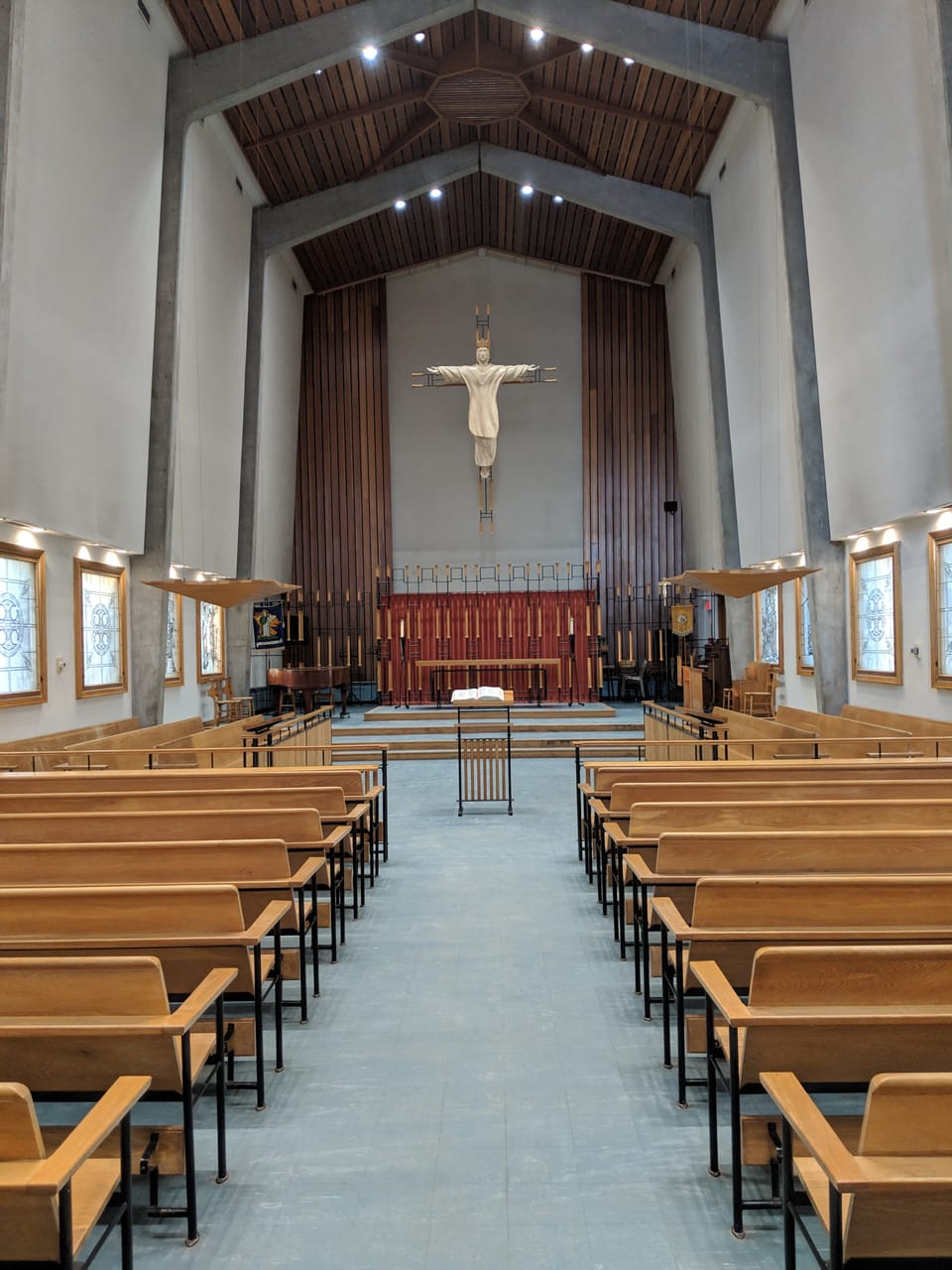What's This Room For

There I was on a Tuesday morning, preparing for worship in the Chapel of St John the Evangelist at the University of Manitoba when I heard the chatter of voices. I saw, just inside the chapel, a group of people, probably undergrads, looking around. I introduced myself as the chaplain, welcomed them to the space, mentioned the upcoming liturgy, and invited them to look around.
I continued to get ready for worship, wondering if they’d stick around for the service, ask questions about the windows, the organ, or maybe the tilework around the font. A few minutes passed and one of the students approached me on behalf of the group. Excited for the conversation that was about to begin, I waited for the question. What came was not what I was expecting.
“What’s this room for?”
Right. I realized quickly my poor assumption. These folks aren’t interested in the organ or the windows or the font. They walked into a very large room that was obviously built for a purpose, what with the strange furniture and decorations and the huge wooden man hanging from the ceiling on a metal cross. But they had no point of reference for a chapel or a chaplain or even Christianity.
We had an engaging and interesting conversation, but it centred on questions about whether or not these young folks had thought about things spiritual, whether they believed that they had spiritual aspects like their physical and mental aspects, and their (very minimal) experience with religion in general. When I approach conversations with people who aren’t regular churchgoers, I mentally prepare for the possibility of discussions about religious trauma, “church hurt”, ongoing scandals, and painful histories. None of these were present on this morning.
It’s not that these smart, well-connected, media-savvy, worldly young adults were uninterested or standoffish about things Christian. It’s that, in their twenty or so years of living, they’d never brushed up against the Church or anyone identifiable as Christian. They had no more frame of reference for me—as a priest and chaplain—the chapel, or the Church as most fish have for bicycles. There was no hostility or even hesitancy about being with me or entering the space. This strange room of unclear purpose and I were simply brand new information and experience for them.
In my now 25 years in the Anglican Church I have been part of many conversations about evangelism, missions, recruitment, and all of the other language that we use to describe this sort of conversation. Nearly every one of those conversations has focused on conversation with people who were, at one time, part of the church to return to it. Speaking to the dechurched. In the few conversations I have heard about speaking to the unchurched—those who have never been part of the church—most of the talk is couched in Christendom thinking. The assumption that these people are aware of Christianity, the church, and have simply not heard the right invitation to persuade them that our local parish is the place for them. While we might be suffering the hangover of the centuries-long bender of Christendom, a rapidly-growing number of Canadians are unaware of what a church is, much less why they might consider being part of one.
Tara Isabella Burton, in Strange Rites: New Religions for a Godless World reminds us that we humans are hard-wired for spiritual practices. No matter how we frame them, whether it’s church or a CrossFit routine, we will make religion for ourselves. Reginald Bibby, in his 2017 book on religion in Canada, Resilient Gods: Being Pro-Religious, Low Religious, or No Religious in Canada points out that while participation in organized religion has declined over the past fifty years, Canadians’ level of interest in spirituality has not much changed. We, the Church, have tools and traditions and wisdom and practices that people are desperate for. But we often seem unable to communicate that in a helpful way.
I am increasingly persuaded that the task of the 21st century evangelist is much more like that of the 1st century than any other period in Christian history. We will meet people for whom we are the first introduction to the church, Christianity, and Christ. Our task, in these conversations, is not an erudite description of the theological controversies of the 16th century, nor why the liturgical aesthetic and preaching of our parish are so obviously superior to those of the place next door. Instead, our task is to find words that share the good news of Jesus Christ, probably while explaining just what this room is for.
Originally Published in The Niagara Anglican, May 2024 edition.





